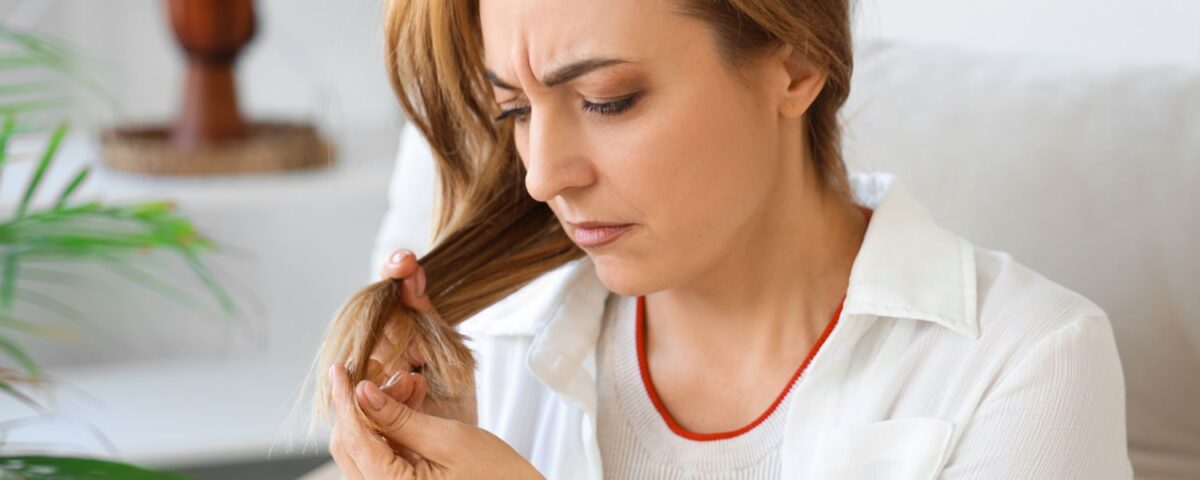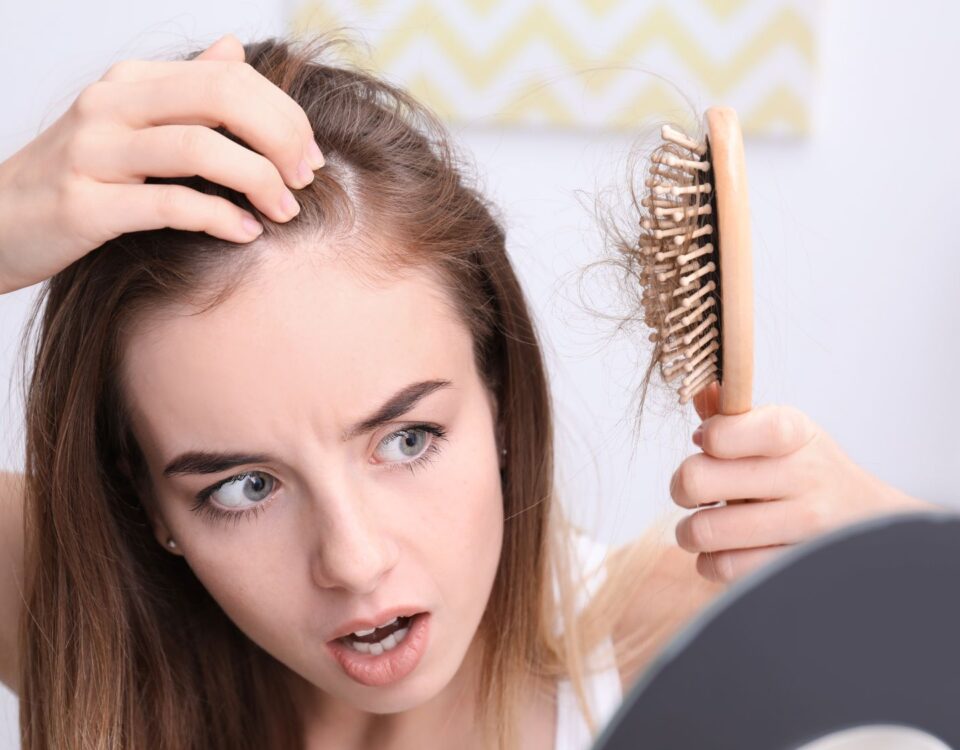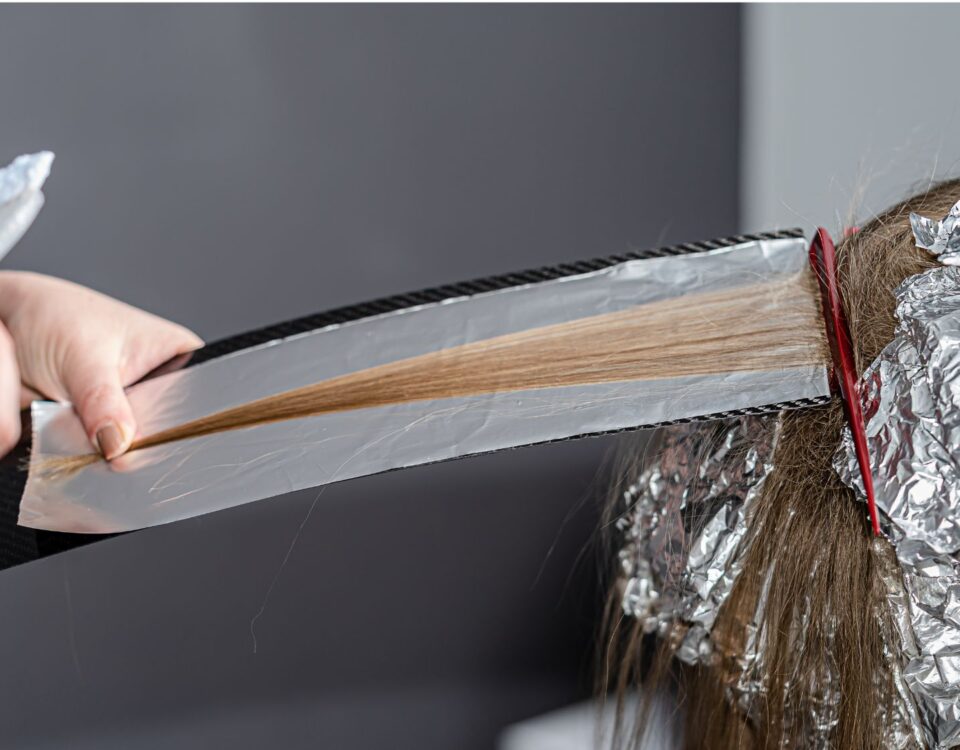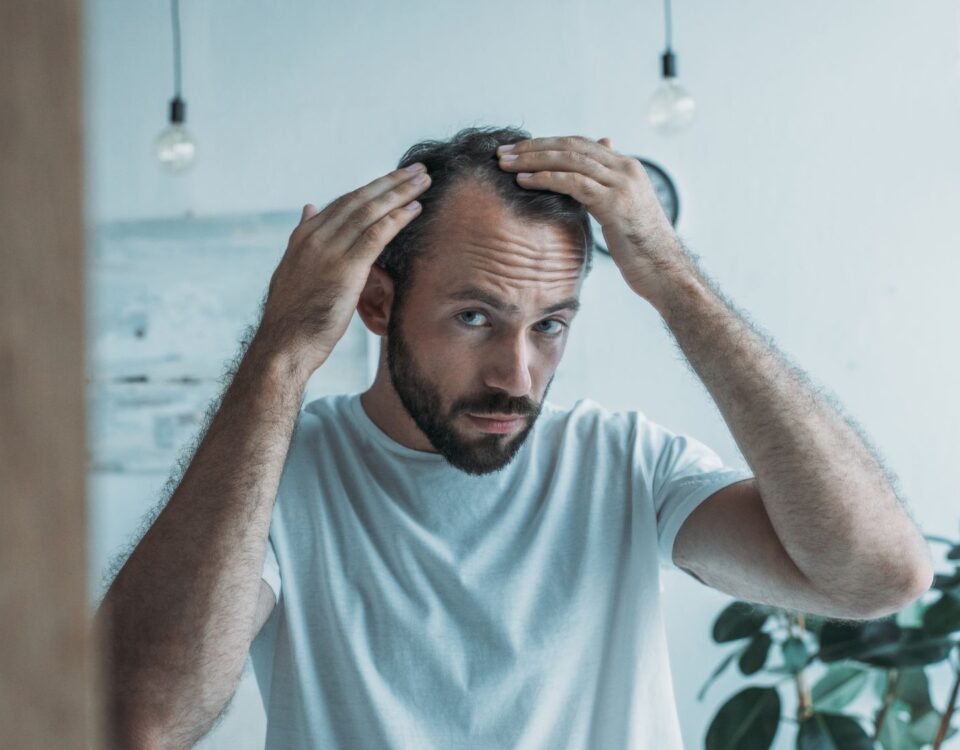
Hair Loss Fashion: Special Event Styling Tips
May 2, 2024
Sun Protection for the Scalp: Preventing Hair Loss from Sun Damage
May 2, 2024A significant number of women experience hair loss during menopause, a natural part of ageing that marks the cessation of a woman’s reproductive period. This hair loss is primarily attributed to hormonal changes, specifically a decrease in estrogen levels and an increase in androgen hormones.
These hormonal changes can disrupt the natural hair growth cycle, leading to thinning and shedding. Unlike male pattern baldness, which typically manifests as distinct bald patches, menopausal hair loss tends to be a diffuse thinning of hair across the scalp.
The Natural Hair Growth Cycle
The hair growth cycle consists of three phases: anagen (growth), catagen (transitional), and telogen (resting). In a healthy hair growth cycle, most hairs are in the anagen phase, while only a small fraction are in the telogen phase. However, during menopause, hormonal changes may disrupt this balance, causing more hair to enter the telogen phase. This results in increased shedding and can give the appearance of thinning hair.
Potential for Regrowth
The question many women ask is, “Will hair loss from menopause grow back?” The answer varies, as hair regrowth following menopausal hair loss is dependent on several individual factors. Some women may experience regrowth as hormone levels stabilise post-menopause. However, the extent of this regrowth can vary depending on genetics, overall health, and the duration and severity of hair loss.
Seeking Medical Evaluation
If you’re experiencing menopausal hair loss, it’s essential to consult with a healthcare professional. A dermatologist or endocrinologist can provide a comprehensive evaluation, helping to identify and address any underlying factors contributing to hair loss. This can be instrumental in determining the likelihood of regrowth.
Treatment Options
There are various treatment options available for managing menopausal hair loss and potentially stimulating regrowth. These include topical minoxidil (Rogaine), hormone replacement therapy (HRT), nutritional supplements, low-level laser therapy (LLLT), and platelet-rich plasma (PRP) therapy. It’s important to note that the effectiveness of these treatments can vary among individuals and may require ongoing maintenance.
Lifestyle Strategies for Hair Health
Alongside medical treatments, there are several lifestyle strategies that can support overall hair health and potentially aid in regrowth. These include maintaining a balanced diet rich in essential nutrients, managing stress levels through relaxation techniques or exercise, avoiding harsh hair treatments and styles that may exacerbate hair loss, and practicing good scalp hygiene.
To sum up, while menopausal hair loss can be distressing, it’s important to remember that it’s a natural part of the ageing process. There is potential for regrowth, and numerous treatments are available to manage this condition. Always consult with a healthcare professional if you’re experiencing hair loss, and remember to nurture your overall health to support your hair’s health.




